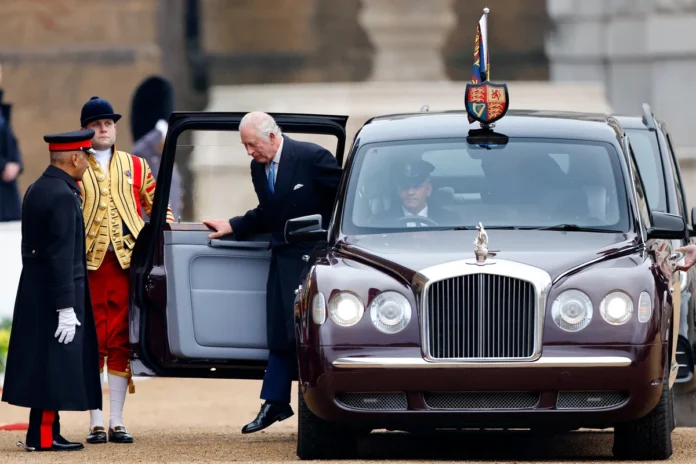Introduction
As the world grapples with the effects of climate change and environmental degradation, sustainability has become a pressing concern across all sectors. Among the global advocates for sustainable practices, King Charles III has emerged as a prominent figure, championing eco-friendly initiatives, particularly in the realm of travel. This blog delves into king charles sustainable travel initiatives, exploring their significance, implementation, and impact on the future of tourism and environmental conservation.
The Importance of Sustainable Travel
Sustainable travel aims to minimize the negative environmental and cultural impacts of tourism while promoting economic benefits for local communities. Given the tourism sector’s substantial contribution to global greenhouse gas emissions, transitioning to sustainable practices is essential for combating climate change. King Charles’ commitment to sustainability underscores the urgent need for responsible tourism that respects both the planet and its inhabitants.
King Charles’ Vision for Sustainable Travel
A Legacy of Environmental Advocacy
Before ascending to the throne, King Charles III was known for his decades-long dedication to environmental causes. From advocating for organic farming to addressing the perils of plastic pollution, his efforts have consistently highlighted the need for a holistic approach to sustainability. This commitment extends to his vision for sustainable travel, which emphasizes reducing carbon footprints, preserving cultural heritage, and fostering community engagement.
Key Initiatives Championed by King Charles
1. Promotion of Low-Carbon Transportation
One of the cornerstones of King Charles’ sustainable travel initiatives is the promotion of low-carbon transportation. Recognizing the significant emissions generated by air and road travel, he advocates for alternatives such as:
- Rail Travel: Encouraging the use of trains as a more sustainable mode of transport. Railways offer a lower carbon footprint compared to flights, making them a viable option for eco-conscious travelers.
- Electric and Hybrid Vehicles: Supporting the transition to electric and hybrid cars to reduce emissions associated with road travel.
2. Support for Eco-Friendly Tourism Projects
King Charles has backed numerous eco-friendly tourism projects aimed at conserving natural resources and promoting sustainable development. These projects often focus on:
- Renewable Energy Integration: Encouraging the use of solar, wind, and other renewable energy sources in tourist facilities.
- Sustainable Architecture: Promoting the construction of eco-lodges and hotels using sustainable materials and energy-efficient designs.
3. Advocacy for Cultural and Environmental Preservation
Sustainable travel is not solely about reducing carbon emissions; it also involves protecting cultural heritage and natural ecosystems. King Charles emphasizes:
- Community-Based Tourism: Empowering local communities to manage tourism activities, ensuring they benefit economically while preserving their traditions.
- Biodiversity Conservation: Supporting initiatives that protect endangered species and habitats affected by tourism.
4. Partnerships and Collaborations
King Charles’ efforts often involve partnerships with governments, NGOs, and private sectors to amplify the impact of sustainable travel initiatives. These collaborations focus on:
- Policy Advocacy: Influencing legislation to incorporate sustainable travel practices.
- Awareness Campaigns: Educating travelers about the importance of making eco-friendly choices.
Real-Life Examples of King Charles’ Impact
The Duchy of Cornwall’s Sustainable Tourism Practices
As the former Duke of Cornwall, King Charles implemented sustainable tourism practices within the Duchy’s properties. These efforts included:
- Encouraging the use of renewable energy.
- Preserving local wildlife and ecosystems.
- Promoting farm-to-table dining experiences to support local agriculture.
Travalyst Initiative
King Charles has shown support for initiatives like Travalyst, founded by his son, Prince Harry. Travalyst focuses on transforming the travel industry by promoting sustainable practices, such as:
- Providing tools for travelers to measure and reduce their carbon footprints.
- Encouraging travel companies to adopt eco-certifications.
Challenges in Implementing Sustainable Travel
While the benefits of sustainable travel are clear, its implementation faces several challenges:
- Economic Barriers: Transitioning to sustainable practices can be costly for businesses, particularly small enterprises.
- Consumer Behavior: Encouraging travelers to prioritize sustainability over convenience or cost can be challenging.
- Infrastructure Limitations: Developing the infrastructure needed for sustainable travel, such as charging stations for electric vehicles, requires significant investment.
The Broader Impact of Sustainable Travel Initiatives
Environmental Benefits
- Reduction in greenhouse gas emissions.
- Preservation of biodiversity and natural landscapes.
- Decreased pollution from tourism-related activities.
Social and Economic Benefits
- Empowerment of local communities through job creation and revenue generation.
- Preservation of cultural heritage and traditions.
- Improved quality of life for residents in tourist destinations.
How Travelers Can Support Sustainable Travel
1. Choose Eco-Friendly Accommodations
Opt for hotels and lodges that prioritize sustainability, such as those using renewable energy, recycling waste, and sourcing locally-produced goods.
2. Reduce Carbon Footprints
- Use public transportation or carpooling options.
- Avoid short-haul flights where possible and choose trains or buses instead.
3. Respect Local Cultures and Ecosystems
- Follow guidelines for interacting with wildlife and natural habitats.
- Support local artisans and businesses to contribute to the local economy.
4. Educate Yourself and Others
Stay informed about sustainable travel practices and share knowledge with fellow travelers to encourage widespread adoption.
Conclusion
King Charles III’s sustainable travel initiatives exemplify the transformative potential of responsible tourism. By championing low-carbon transportation, supporting eco-friendly projects, and advocating for cultural preservation, he sets a precedent for a greener, more inclusive future. As travelers, adopting these principles can help amplify the impact of his efforts, ensuring that tourism becomes a force for positive change rather than a contributor to environmental decline. Together, we can journey toward a sustainable tomorrow.
